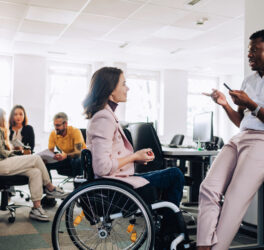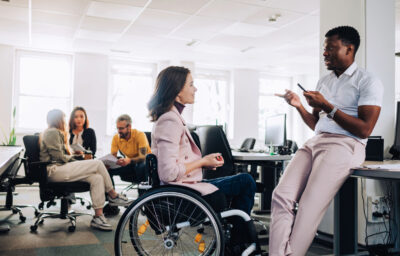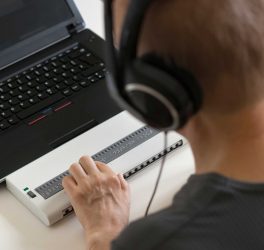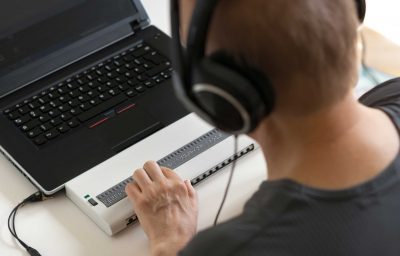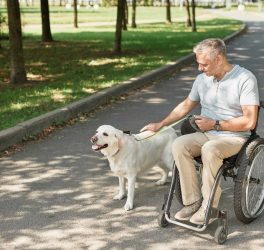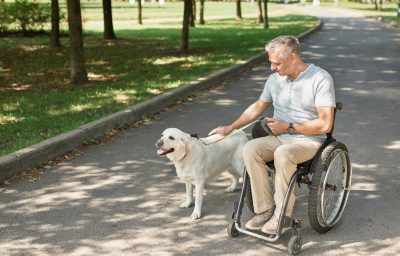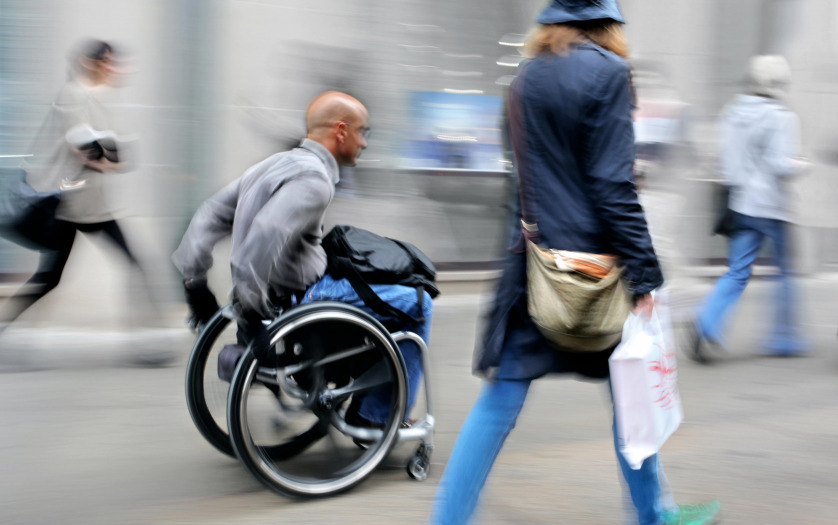
The Human Rights Council (HRC) held its annual interactive debate on the rights of persons with disabilities, on the theme of statistics and data collection under article 31 of the Convention on the Rights of Persons with Disabilities. It also concluded its interactive dialogue with the Special Rapporteur on the right to food.
Ilze Brands Kehris, Assistant Secretary‑General for Human Rights, said States should support the agenda of community inclusion, both to provide persons with disabilities with the support they needed to be fully part of their communities and to reduce excessive unpaid care work, which disproportionally impacted the economic empowerment of women and girls. They should also continue supporting persons with disabilities around the world, and increase their efforts to find concrete solutions to the many challenges they faced.
Gerard Quinn, Special Rapporteur on the rights of persons with disabilities and moderator, said data was crucial for rational policy making, and to help prioritise between competing goals. Data was also important in measuring real obstacles against assumed articles.
María Cecilia Rodríguez Gauna, representative of the Washington Group on Disability Statistics, said ensuring that no one was left behind required accurate and timely monitoring of the living conditions of the most vulnerable populations and in particular of persons with disabilities. Having disaggregated information on the population with disabilities contributed to monitoring inclusion to ensure the equal promotion and protection of human rights and fundamental freedoms for all persons with disabilities.
Ana Brian Nougrères, Special Rapporteur on the right to privacy, said personal data should be collected and disaggregated, as this guided States in creating action plans at both national and local level, with the aim of improving the situation of human rights, and this was the goal of any social action. People must be provided with mechanisms to safeguard their personal data, and this was even greater when dealing with sensitive data such as on health and rehabilitation.
Laisa Vereti, representative of the International Disability Alliance, said to have disability disaggregated data, partnership and capacity development was crucial. Support by donors and partners was also critical. Investing into capacity building of organizations of persons with disabilities allowed them to come to the table as equal partners equipped with skills and knowledge to influence policy change.
In the discussion, speakers said that including persons with disabilities in all areas of life was a matter of social justice. Data collection should be disaggregated by disability, and linked to human rights obligations, which would make it possible to advance and understand the situation of persons with disabilities, and improve the implementation of the Convention on the Rights of Persons with Disabilities. No person should be overlooked when speaking of full enjoyment of human rights and fundamental freedoms, including full participation in civil and political life. Data collection should be managed in full compliance with confidentiality, and in respect of human rights, and States should collect it in collaboration with organizations for persons with disabilities.
Speaking in the debate on the rights of persons with disabilities were: Egypt (on behalf of a group of countries), Lithuania (on behalf of a group of countries), Mexico (on behalf of a group of countries), Algeria (on behalf of a group of countries), New Zealand (on behalf of a group of countries), Saudi Arabia (on behalf of the Gulf Cooperation Council), European Union, Morocco (on behalf of Group of Arab States), Israel, United Arab Emirates, Greece, Italy, Mozambique, United Nations Educational, Scientific and Cultural Organization, United Nations Children’s Fund, Lesotho, Singapore, Cambodia, Botswana, Belarus, Fiji, Paraguay, United Nations Population Fund and Thailand.
Also speaking were: Human Rights Council of Morocco, Asian-Pacific Resource and Research Centre for Women, International Disability Alliance, International Lesbian and Gay Association, Action Canada for Population and Development and Beijing Guangming Charity Foundation.
At the beginning of the meeting, the Council concluded its interactive dialogue with Michael Fakhri, the Special Rapporteur on the right to food.

